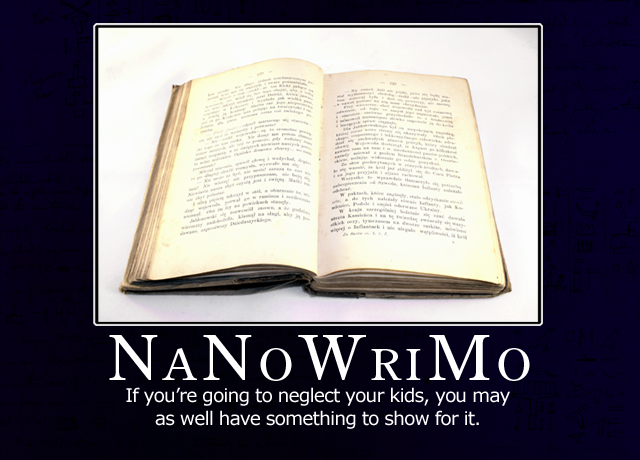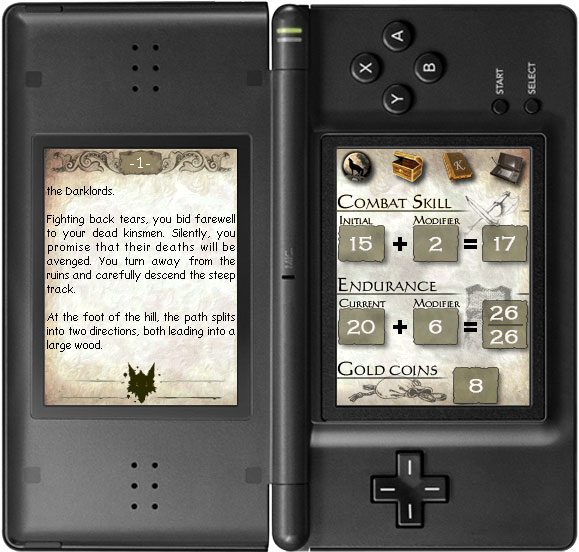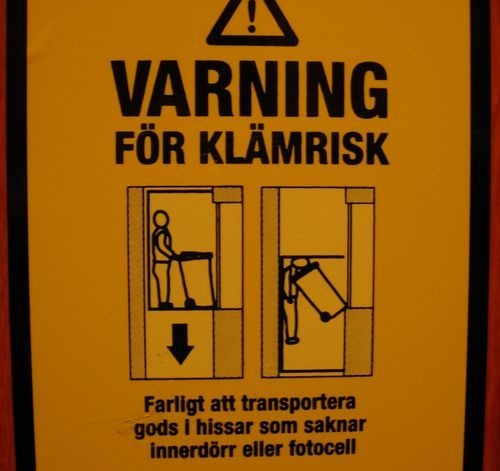Reflections on Death
Did you avoid this post, or were you drawn to it because of the title?
That’s a dumb question, if you’re reading this now, you obviously didn’t avoid it. But someone may have avoided it, so I’m sorry for the sensationalist title. I’m also sorry if I’ve misled you to believe I was going to be talking about death.
I mean, I am going to talk about it, but not in the way you may be thinking.
I’m writing a novel in November with Nanowrimo. Most of you know this because I spend half my time convincing you to write a novel too.

I plan on writing a Choose Your Own Adventure book, with as many multiple endings as I possibly can. In fact, I want it to have a few more RPG elements, with the dice and the inventory and the nerdism of it all. Heck, if I could, I would port it to the DS like these guys did with the Lone Wolf series. One day, someone will port my stuff to a mobile device.

Before I get distracted even more, think of death in games. What does one do if one is all by oneself with an easy reset button? Death with a consequence so severe that it will undo hours of game grinding is not considered fun in anyone’s books. Remember back in the old days when you died in a Sierra game? I remember in King’s Quest IV, I had to walk up a staircase. And it was a winding stair case so sometimes you couldn’t see your character, and one slip of the mouse, WHAM. Rosella dies because she can’t figure out how to navigate a device invented to make bipedal upward movement easier. Deep down, I hated that game. Mostly because of the unicorn harnass. It was so unfair.
Lucasarts got it right. They let you explore the game and try all the choices with no negative consequences. The games were about exploring and discovering, and one didn’t have to skulk about timidly wondering if the next door they find ends up in their painful demise.
But it was pointless anyway, because you could always reload. The most funniest moment I remember in the game Planetfall, was right after I saved the game. Your little robot companion named Floyd responded, “Oh boy, are we going to try something dangerous now?” Infocom games didn’t punish you by random death, however. Usually, death occurred if you did something really stupid. Or they gave you subtle hints. I usually did something stupid and missed the subtle hints, but I didn’t feel cheated by that.

But why have death to begin with if we’re just going to reload? What do we learn other than the game creators get a sadistic pleasure out of our frustration.
In life, there are consequences. We learn from these mistakes and hopefully have learned a better method to further our goals that don’t end up with Children’s Aid at our door wondering why the children our outside foraging.
If a game kills us, we reload, or perhaps respawn, and learn not to do that again. This works in action oriented game and even turn based games. But for an adventure game, one rarely comes up with the same situation over and over again, unless it’s those stupid stairs. There were a few stairs in King’s Quest IV. I hated that game.
Michael Niggel mapped out a Choose Your Own Adventure game called, Journey Under the Sea. It turns out that unfavourable endings (like death), occur quite a bit.

Now, if all the reader has to do is flip a few pages back, what’s the point? Isn’t there enough page flipping in this book as it is?
My Point
These things are so long that I’m pretty sure you guys are just skimming it, so I’ve made it easier for you and labeled what my point is.
My goal is to have no death in my book.
My goal is to have not ONE favourable ending, but many favourable endings.
I want multiple timelines. The reader’s choice will change the story significantly, they won’t just turn back to page two and end up in an infinite loop.
Heck, it would be cool to choose a different character’s perspective at the beginning, maybe even the antagonist, but then that would be super long. Forget that.
Those would be my goals for my book. Will I accomplish them? I don’t know. But I found this really cool software called TiddlyWiki. I’ve researched Wiki software for work but we required a database and such. This little wiki, however, has only one page as the ‘install’. That’s it. And it saves everything for you in the folder it’s in. You don’t need a MySQL database. You don’t need an apache server. You just need an up to date browser!
And then you have your very own local wiki on your computer! How utterly awesome is that? Huzzah!!
I’m so excited for my book only because I now have this wiki to try out!
Ya, I could be doing smart things, like outlining, and figuring out a plot. But I think I should design the wiki so it has a cool theme instead. Maybe it will have AT-AT’s in the header. Not that there are AT-AT’s in the book.
Oh wait, that reminds me, I wrote an AT-AT song last night for my children’s CD.
Fear for the families who must receive this CD.
I’m not ADHD, btw. I don’t think I am.